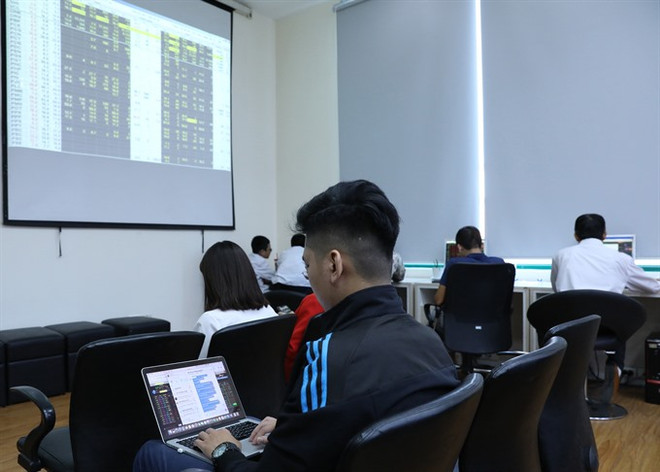Vietnam’s two exchange indices – the benchmark VN-Index and the HNX Index –have performed well since mid-November, but their growth has shown signs ofslowing in the year-end.
The VN-Index on the Ho Chí Minh Stock Exchange on December 14 fell 0.85 percentto close at 952.04 points. It gained 6.11 percent in the last month.
The HNX Index on the Hanoi Stock Exchange was down 0.61 percent to finish lastweek at 106.65 points. A similar scenario was also seen on the northern market,which has increased 5.57 percent over one trading month.
Prior to lastweek’s close, the two indices had respectively risen 4.42 percent and 3.83 percentin two weeks.
December 14’s declines on the two bourses were totally normal given the factthat local stocks had advanced well in the previous two trading weeks, VNDirectSecurities JSC’s head of services division Nguyen Trung Du said.
“The local market was taken down by declining pressure of major global stockmarkets, such as the US and China. Plus, the appreciation of the US dollar alsoposed negative impacts on the market sentiment, weakening some large-capstocks,” Du told tinnhanhchungkhoan.vn.
But in general, the outlook for large-cap stocks remained positive andinvestors were slowly changing their targets, Du said, adding changes wereunlikely to boost the market in the remaining two weeks of the year.
Liquidity was not strong enough to keep the indices growing because investorswere too sensitive to international developments, which were seen as“negative”, according to analysts.
An average of more than 237.4 million shares was traded in each session lastweek on the two exchanges, worth 5.08 trillion VND (223 million USD).
The figures were down from the previous week’s numbers of 245 million shares involume and 5.2 trillion VND in value.
International developments continued weighing on the market sentiment,especially the relationship between the US and China.
Early this month, a ceasefire agreement reached between the US and China duringthe G20 Summit was expected to boost trade relations between the two largesteconomies.
Besides, the latest data also shows a slowdown of the Chinese economy, meaningits trade partners, including VIetnam, may be affected to some extent.
“Global markets have underperformed on this news, and Vietnam is not anexception,” Hoang Thach Lan, director of the individual investor division atViet Dragon Securities Corp (VDSC), said.
“It has never been easy to ‘control’ global news, also known as externalfactors to the Vietnamese market, as it is too difficult to predict. This couldcause the indices to grow more slowly than expected and extend the localmarket’s volatility in the next two weeks,” he said.
Though the indices didnot have big gains last week, the market sentiment seemed to improve, accordingto Nguyen Hong Khanh, analysis director at Vietnam International SecuritiesJSC.
“Investors are finding opportunities in potential stocks ahead of the comingquarterly earnings season and that has improved the overall price level for thewhole market,” Khanh said.
|“We may keep an eye onbanks and property firms as they are expected to create a rally at the year-endperiod as investors bank on their full-year earnings being huge,” he added.
Investors should also watch the fishery and textile and garment sectors as theywere speeding up their businesses and their future prospects would benefit fromnew free trade agreements, he said.
Consumer goods firmsshould also be a target for investors because consumption often rises at theyear-end when customers prepare for holidays and festivals, according to Lan atVDSC.
Shares in consumercompanies such as Masan (HoSE) have gone up significantly in recent weeks.Masan has gained nearly 6.9 percent since the end of November.-VNS/VNA





























